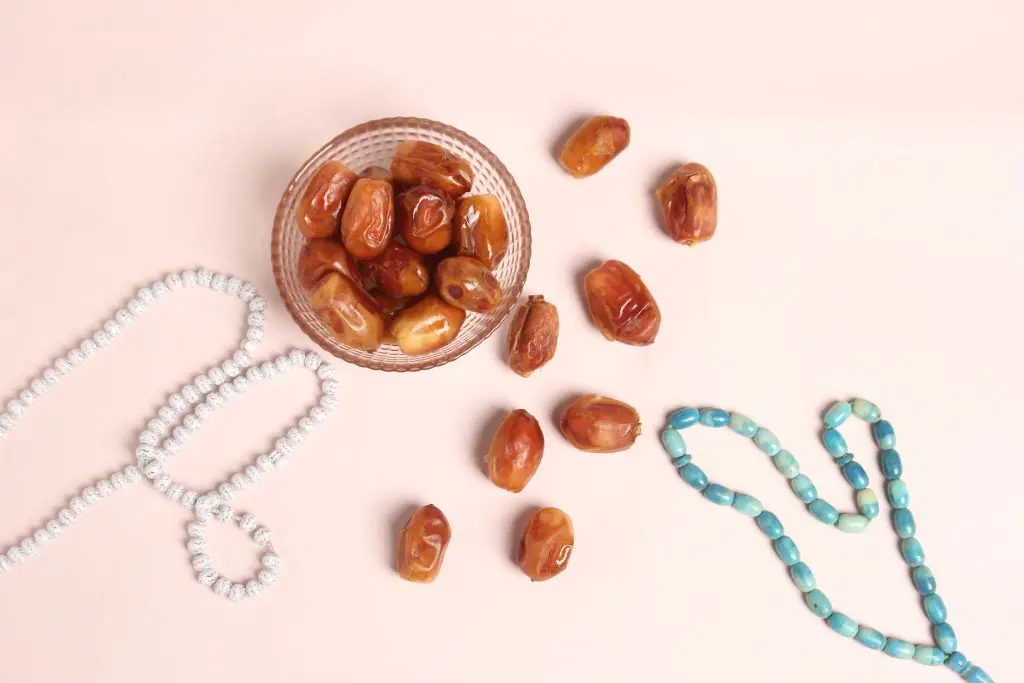How to Play Basketball in Ramadan
With the upcoming Muslim holy month of Ramadan nearly upon us, basketball players and lovers who observe the month may be a bit nervous and apprehensive of both fasting and playing basketball at the same time. And while difficult, there are many ways to play basketball during Ramadan and when an individual is in a fasting state.
Below, we are going to review how to play basketball in Ramadan. In this article, we will review the best ways to limit fatigue, exhaustion, and dehydration and practical steps that basketball players who observe the holy month can take to ensure that their performance is not impacted by the fast.

What is Ramadan?
Ramadan is the ninth month in the Muslim calendar and is typically associated as a holy month. Ramadan is typically meant to be a month of self-restraint, with religious observers practicing the daily fast from sunrise to sunset. This fast includes a refrain from all food, drink, and sexual activity within those hours.
In addition, any form of immoral behavior, including false words, bad deeds or intentions, lying, and backbiting are prohibited and are generally considered to break a person’s fast. Similarly, smoking of any form is prohibited during the fast.
Although Ramadan is a full month long, the fast is broken up into days. Muslims and observers of the fast will abstain from both food and drink from sunrise to sunset and are permitted to resume their regular cadence of meals and drink once the sun has set.
Typically, for many Muslim families, Ramadan is an opportunity to develop their faith, participate in additional prayers and prayer services, and to learn self-restraint and patience. For these families, the break of the fast is usually accompanied by massive meals and feasts, wherein the fasting individuals will gather to break fast together.
Are There Exemptions to Fasting?
While the Ramadan fast is obligatory on every practicing Muslim, there are a few scenarios in which a Muslim is allowed to break or miss a scheduled fast. However, unless unable to do so, these individuals will be expected to make up any days missed during the Ramadan month within the following calendar year.
The first exemption to fasting Ramadan is illness. Illness, in this context, is any condition that places a person outside the bounds of health and in indisposition. However, not all illnesses are created equally. If a person comes down with an illness which will worsen or delay their recovery via fasting, then an exemption may be made.
Secondly, an exemption to fasting may be made to someone who is travelling. Generally, travelling is considered an exemption to fasting in Ramadan when considering both the duration and distance of the travel and more information on the specifics can be found here.
Similarly, an individual’s age may also exempt them from fasting the month of Ramadan. Generally, both the elderly and the young are exempted from fasting the month of Ramadan.
And lastly, a woman on her period is also exempted from fasting while she is experiencing bleeding. These days that are missed must be made up within the following calendar year and must be completed before the following Ramadan occurs. Similarly, a woman who is pregnant or nursing may also be exempted from completing the Ramadan fast.

Why do Muslims Fast in Ramadan?
Fasting in Islam is considered to be one of the five pillars. All adult-aged Muslims are expected and obligated to complete the Ramadan fast and must abstain from both food and drink from sunrise to sunset. For Muslims, the Ramadan fast is a time to devote themselves to the remembrance of God, or Allah, in Arabic.
Ramadan is a time of personal self-reflection and spiritual reflection. Fasting, offering additional prayers, and completing good deeds and spending time with loved ones, family, and friends are both religious and cultural practices which help a devout Muslim to strengthen their faith and their remembrance of God.
What do Muslims do at the End of Ramadan?
The end of Ramadan is marked as a Muslim holiday, so called Eid al-Fitr, or the festival of the breaking of the fast. Eid al-Fitr is a day of celebration and one that is meant to mark the completion of the month’s fast. The Eid al-Fitr holiday is marked by the completion of the month of Ramadan and when the first sight of the new moon is seen.
Muslims will typically attend a prayer service early in the day on Eid al-Fitr and will typically meet with loved ones, family, and friends to celebrate the joyous occasion. Gifts, food, and celebration will typically commence, and Muslims are forbidden from fasting on the holiday itself.

Best Ways to Play Basketball During Ramadan
While fasting the month of Ramadan can be physically taxing, for the avid basketball fan, there are some tips and tricks which can help to maintain an active lifestyle while continuing the fast. However, it should be noted, that if you are feeling unwell, fatigued, or dizzy from the fast, it is generally recommended to avoid physical activity during the fasting periods.
- Wake Up for Suhoor – suhoor, in Islam, is a recommended pre-dawn meal which helps to ease hunger and thirst pangs throughout the day. Muslims are recommended to wake up for suhoor and to eat refreshing, filling meals and drink hydrating and thirst-quenching fluids such as water and sports drinks.
- Maintain a Moderate Level of Exertion – fasting isn’t easy, in fact particularly in the beginning days of a long-term fast, your body will be adjusting and going through many changes. If you do decide to play a game of basketball, try and limit your intensity and your total output as to not wind yourself and risk injury.
- Tell Your Teammates and Coaches – if you have a big game coming up, be sure to let your teammates and coaches know that you will be fasting. Not only will doing so help to explain any lethargy you may be feeling, but your coach will also be able to substitute you in and out of the game as needed and to allow you to preserve your energy levels.
- Avoid Driving to the Basket – while we would never encourage you to not play defense, you should look to avoid driving to the basket as much as possible. As you are fasting and without food and drink, you should avoid any additional outputs of. Energy which could be detrimental to your fast. Rather, look to make open shots from around the perimeter.
- Be a Facilitator – lastly, while playing basketball while fasting, you should try to minimize your need to expend too much energy. Rather, look to be a facilitator, helping teammates to get open shots and make the plays for you.
